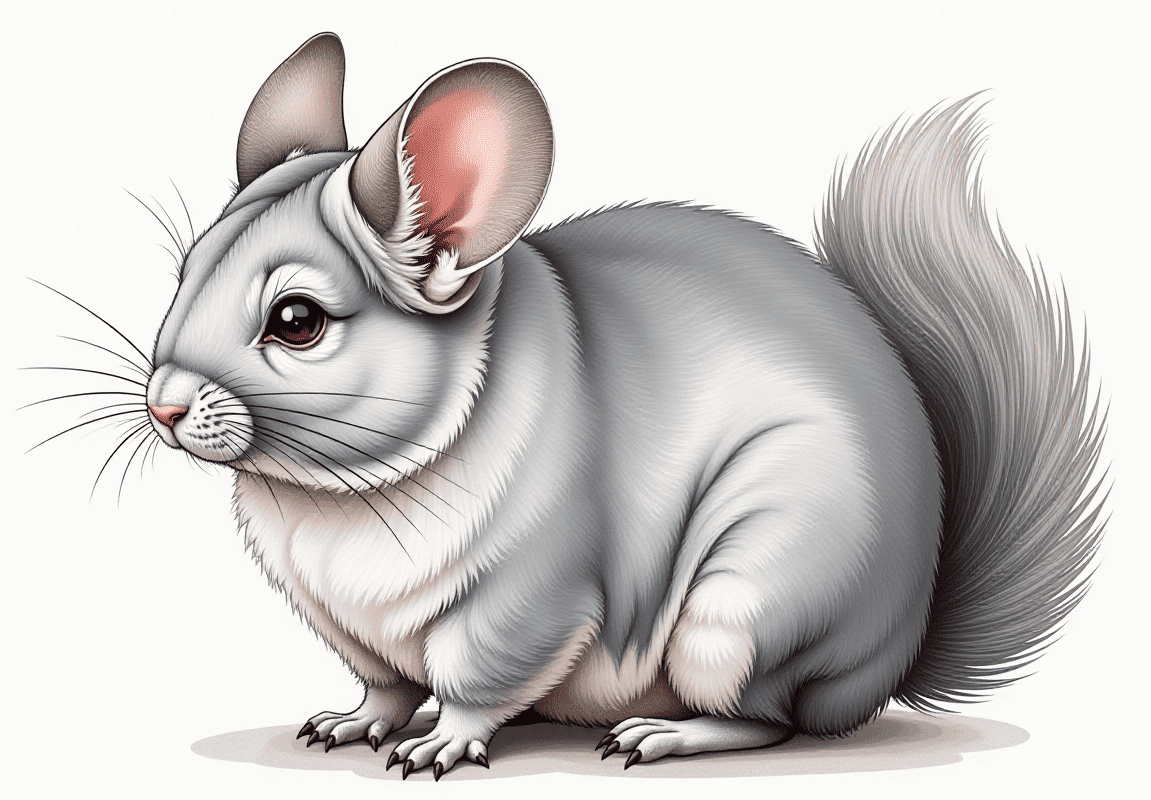Chinchilla vs Rabbit: A Comprehensive Guide to Choosing Your Perfect Pet
When deciding on a new furry companion, the chinchilla vs rabbit debate is a common one. Both pets captivate owners with their charming personalities, adorable looks, and engaging behaviors. However, their care requirements, lifespans, and suitability for various lifestyles differ significantly. This blog will explore the chinchilla vs rabbit comparison in-depth to provide well-researched and actionable insights for prospective pet owners.
Understanding Chinchillas and Rabbits: Key Differences
1. Physical Characteristics
- Chinchillas: Originating from the Andes Mountains, chinchillas are small rodents known for their extraordinarily dense fur (with up to 60 hairs per follicle), large ears, and bushy tails. They typically weigh between 1–1.5 pounds and require cool, dry environments to prevent overheating.
- Rabbits: Generally larger than chinchillas, rabbits vary in size from 2–20 pounds, depending on the breed. They have soft fur, long ears, and strong hind legs for jumping. Long-haired breeds, like Angoras, demand regular grooming to prevent matting and health issues.
Some rabbit breeds, such as the Flemish Giant, can grow over 20 pounds, requiring significantly more space than a chinchilla. On the other hand, chinchillas’ fur is so dense that they cannot tolerate moisture, necessitating dust baths instead of traditional water baths.
2. Lifespan and Commitment
- Chinchillas: With proper care, chinchillas can live 10–20 years, making them a long-term responsibility.
- Rabbits: Typically live 8–12 years, although certain breeds may reach up to 15 years with optimal care.
A pet’s lifespan is a crucial consideration for responsible ownership. Prospective pet owners should be prepared for the long-term commitment required.
Behavior and Temperament: Chinchilla vs Rabbit
Chinchillas

- Nocturnal and highly active during nighttime hours.
- Social but naturally cautious; prefer a calm, predictable environment.
- Enjoy climbing and require multi-level enclosures for enrichment.
- Less inclined to seek out human affection but can form strong bonds with patient owners.
Rabbits
- Crepuscular, meaning they are most active at dawn and dusk.
- Highly social and form deep connections with humans or other rabbits.
- Require daily exercise, mental stimulation, and free-roaming time.
- Enjoy gentle handling and petting but may become aggressive if mishandled.

Rabbits communicate through body language, such as thumping their feet to signal danger or binkying (joyful jumps) when happy. Chinchillas, on the other hand, may emit a variety of vocalizations, including barks and chirps, to communicate with their owners.
Care Requirements: A Head-to-Head Comparison
Habitat Needs
- Chinchillas: Need a well-ventilated, multi-level cage with platforms, dust baths for fur maintenance, and temperatures below 75°F to prevent heatstroke.
- Rabbits: Require a spacious enclosure with ample room to hop, along with litter training and supervised outdoor playtime.
Diet
- Chinchillas: Their diet consists mainly of hay, supplemented with high-quality pellets and occasional treats such as rose hips. Sugary or high-fat foods can cause severe health issues.
- Rabbits: A balanced diet consists of 80% hay, fresh leafy vegetables, and limited pellets to ensure optimal digestive health.
Health Considerations
- Chinchillas: Prone to dental issues, heatstroke, and gastrointestinal disorders. Regular vet visits are crucial.
- Rabbits: Susceptible to gastrointestinal stasis, dental malocclusion, and respiratory infections. Spaying/neutering is recommended to prevent reproductive-related illnesses.
Unlike rabbits, chinchillas cannot vomit, making digestive issues particularly dangerous. Ensuring proper fiber intake is essential for their gut health.
Pros and Cons: Chinchilla vs Rabbit
- Chinchilla Maintenance: Low grooming needs, requiring only dust baths.
- Rabbit Maintenance: High grooming needs, including brushing and nail trims.
- Chinchilla Allergies: Hypoallergenic fur, making them a better option for sensitive owners.
- Rabbit Allergies: More likely to trigger allergies due to shedding.
- Chinchilla Space Needs: Vertical cages work well, but they require climbing areas.
- Rabbit Space Needs: Need a larger horizontal space for hopping and exercise.
- Chinchilla Interaction: Less hands-on, enjoys observing rather than constant interaction.
- Rabbit Interaction: Affectionate, enjoys cuddling and social interaction.
Which Pet Is Right for You?
- Choose a Chinchilla If: You prefer a pet with minimal grooming needs, can provide a cool environment, and are comfortable with their nocturnal nature.
- Choose a Rabbit If: You want an affectionate, social pet, have ample space for exercise, and are willing to commit to regular grooming and training.
Conclusion
The chinchilla vs rabbit decision ultimately depends on your lifestyle, available space, and willingness to meet each pet’s unique needs. Chinchillas offer fascinating, low-maintenance companionship but require specific environmental conditions and patience to build trust. Rabbits, on the other hand, provide interactive and affectionate companionship but demand more hands-on care, space, and regular grooming.
No matter which pet you choose, both rabbits and chinchillas can bring years of joy—provided you commit to their well-being. Always consult veterinarians or breed-specific rescues for tailored guidance before making your decision! 🐇🖤🐭
